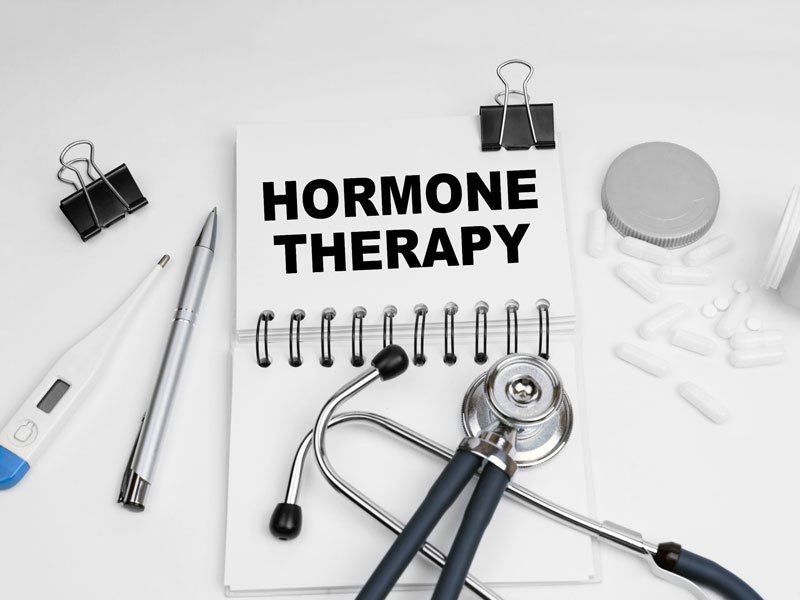Hormone therapy (HT), also known as hormone replacement therapy (HRT), is one of the most effective treatments for managing menopause symptoms like hot flashes, night sweats, vaginal dryness, and mood changes. But for women with a family history of cancer, particularly breast, ovarian, or uterine cancer, hormone therapy can raise understandable concerns.
Does a family history of cancer mean hormone therapy is off the table? The answer is: not necessarily. It depends on the type of cancer, the specific hormones used, and your personal risk profile.
In this article, we’ll break down how a family history of cancer affects hormone therapy decisions—and how you and your doctor can navigate the safest options.
Understanding Family History: What Counts?
When doctors ask about a family history of cancer, they typically mean:
- First-degree relatives: mother, sister, daughter
- Second-degree relatives: grandmother, aunt, niece
The type of cancer matters, too. A family history of:
- Breast cancer may raise concern with estrogen/progestin therapy.
- Ovarian or uterine cancer may affect how estrogen is prescribed.
- Colon or cervical cancer generally has little impact on hormone therapy decisions.
It’s also important to distinguish between a family history and a genetic mutation, like BRCA1 or BRCA2. Only a small percentage of breast and ovarian cancers are caused by these mutations.
Myth Busting: “I Have a Family History, So Hormone Therapy Isn’t Safe for Me”
✅ Fact: Having a family history of cancer does not automatically disqualify you from hormone therapy.
Modern research shows that personal medical history is more significant than family history alone when determining risk. For example:
- A woman whose mother had breast cancer in her 70s but who is herself in good health may still be a good candidate for HT.
- A woman with no personal cancer history but with a BRCA mutation may need more specialized counseling, but HT may still be an option in certain cases.
🧠 Key point: Family history raises flags, but doesn’t close doors. The key is individualized risk assessment.
Hormone Therapy and Breast Cancer Risk: What the Evidence Says
The 2002 Women’s Health Initiative (WHI) study caused widespread fear about hormone therapy and cancer. However, the data has since been reanalyzed and clarified:
- Estrogen-only therapy (for women without a uterus) did NOT increase breast cancer risk and may even reduce it slightly.
- Combination therapy (estrogen + progestin) showed a slight increase in breast cancer risk, but only after 5+ years of use, and primarily in older women who started HT late after menopause.
Modern hormone therapy, especially when started before age 60 or within 10 years of menopause, is associated with low absolute risk in most women, even with a family history.
What If You Have a BRCA Mutation?
If you carry a BRCA1 or BRCA2 gene mutation, your risk of breast and ovarian cancer is significantly higher. Many women with BRCA mutations opt for prophylactic oophorectomy (ovary removal) to reduce cancer risk, which induces early menopause.
Can You Take Hormone Therapy After Surgical Menopause?
Yes—with careful guidance. Studies have shown that short-term hormone therapy after risk-reducing oophorectomy does not appear to increase breast cancer risk, especially when:
- The woman never had breast cancer herself
- Therapy is estrogen-only (after hysterectomy)
- The treatment is limited to early menopause transition
🧬 Important: Always consult with a genetics counselor and a menopause-informed provider if you are BRCA-positive.
What If You’ve Had Cancer Yourself?
If you have a personal history of:
- Hormone receptor-positive breast cancer
- Ovarian cancer
- Endometrial cancer
… then systemic hormone therapy is usually contraindicated. However, alternatives may include:
- Non-hormonal therapies: SSRIs, SNRIs, Gabapentin for hot flashes
- Vaginal estrogen (local therapy): In low doses, this may be considered safe for some survivors under supervision, as it has minimal systemic absorption
- Lifestyle and integrative therapies: Diet, acupuncture, cognitive behavioral therapy (CBT), and exercise
Tailoring Hormone Therapy: Safe Strategies for Women With a Family History
If you’re considering HT but have a family history of cancer, your doctor may recommend:
1. Lower-dose or short-term therapy
- Aim for the lowest effective dose for symptom relief.
- Use for 3–5 years or until symptoms subside.
2. Transdermal delivery
- Patches, gels, or sprays bypass the liver, reducing the risk of blood clots and minimizing systemic exposure.
3. Estrogen-only therapy
- Safer for women who’ve had a hysterectomy.
- Not associated with increased breast cancer risk in most studies.
4. Non-hormonal support
- Use in combination with low-dose vaginal estrogen for sexual symptoms, or as a standalone for those with higher risk.
The Bottom Line
Having a family history of cancer doesn’t automatically mean hormone therapy is unsafe—but it does mean you need a thoughtful, personalized approach.
Your provider will consider:
- Your age and time since menopause
- Type of cancer in your family
- Genetic testing results (if applicable)
- Personal risk factors: smoking, weight, health history
- Symptom severity and quality-of-life impact
With expert guidance, many women with a family history of cancer can safely use hormone therapy and enjoy significant relief from menopause symptoms.
Curious Whether Hormone Therapy Is Safe for You?
Schedule a personalized consultation with our menopause care team. We’ll help you weigh the risks, benefits, and alternatives so you can make a confident, informed decision.




